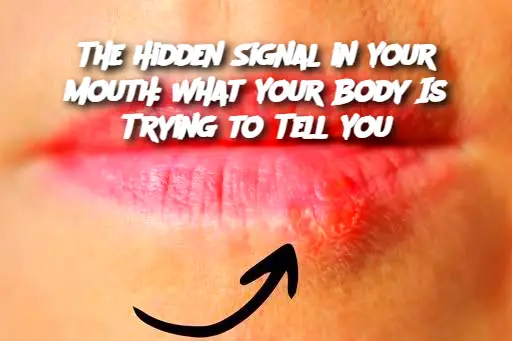ADVERTISEMENT
Dehydration Warning: One major cause of dry mouth is dehydration. Ensure you’re drinking enough water throughout the day, especially if you're active or in a hot climate.
Diabetes Warning: If your breath starts smelling fruity or sweet, it could be a sign of uncontrolled diabetes. This change is due to your body producing ketones, a byproduct of fat breakdown when your body can’t process glucose properly.
Iron Deficiency: If your tongue becomes smooth, swollen, or pale, it could indicate an iron deficiency, which may lead to a condition known as glossitis. In this case, incorporating iron-rich foods like spinach, lean meats, and fortified cereals into your diet may help.
Frequently Asked Questions:
What does a dry mouth indicate? A dry mouth can be a result of dehydration, medication side effects, or health conditions like diabetes or autoimmune diseases. It’s important to stay hydrated and consult a doctor if the condition persists.
Why is my breath smelling bad even though I brush my teeth? Persistent bad breath (halitosis) can be caused by gastrointestinal issues, such as acid reflux, or even serious conditions like kidney disease. If this continues, it’s important to seek medical advice.
Can changes in my mouth indicate a vitamin deficiency? Yes, a lack of essential vitamins and minerals such as B12, iron, and folic acid can cause changes in your mouth, including sore gums, a pale tongue, or mouth ulcers. A balanced diet or supplementation may help address these deficiencies.
Is it normal to see white patches on my tongue? White patches can sometimes be a sign of oral thrush, a fungal infection, or can simply result from a buildup of bacteria. If the condition persists or is accompanied by pain, it’s a good idea to see a doctor.
When should I seek medical help for mouth changes? If you experience persistent symptoms such as swelling, severe pain, unusual breath odor, or changes in taste, it’s important to see a healthcare professional to rule out any serious conditions.
By recognizing the important signals your mouth sends, you can catch potential health problems early and take proactive steps toward maintaining your overall well-being.
ADVERTISEMENT
